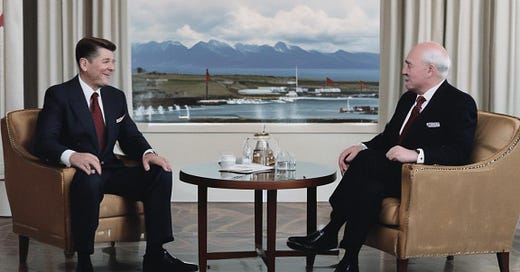We can quibble about what kind of president Ronald Reagan was, but his negotiation skills changed the world for the better.
If one looks back on the history of the 1980s, we usually do it with rose-neon-colored glasses. Romantic in some respects. Silly in others (hairstyles and fashion in particular).
The reality was that we were embroiled in what nearly …
Keep reading with a 7-day free trial
Subscribe to The O'Leary Review with Brian D. O'Leary to keep reading this post and get 7 days of free access to the full post archives.




